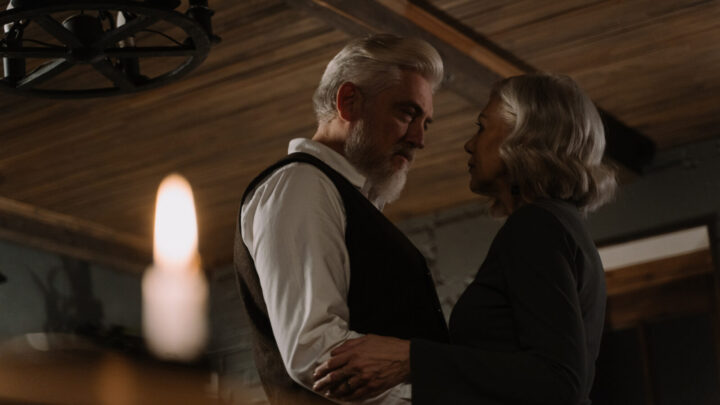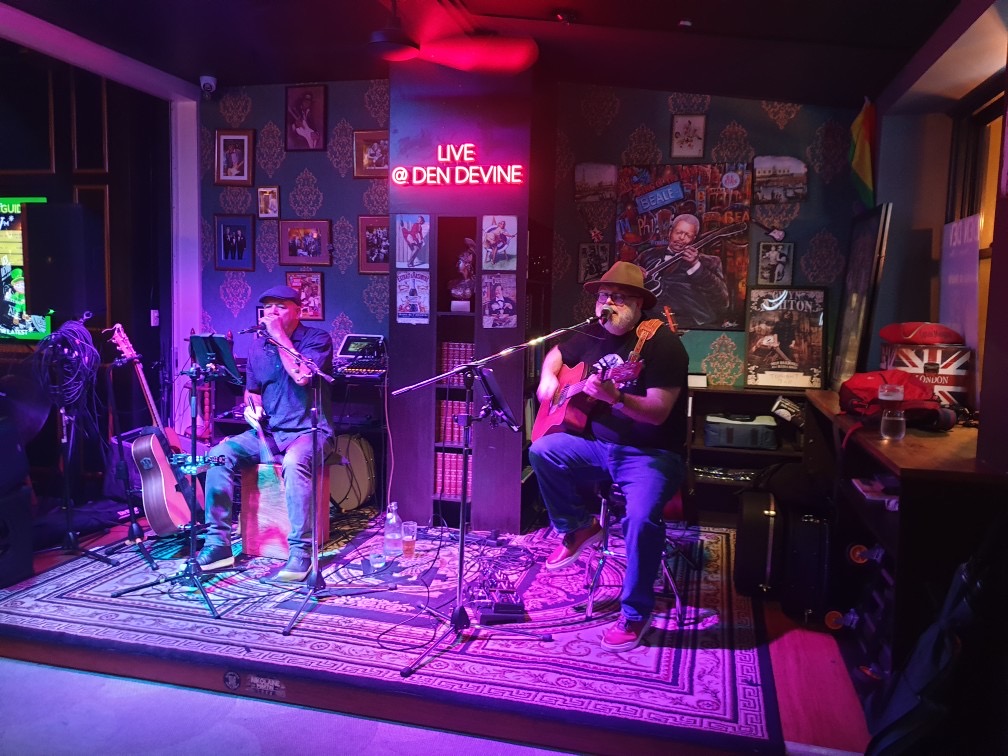
Men my age tend not to dance.
But there are a few reasons why we should at least try. It’s not only good for your body and brain (according to experts), but if you are single, then it is also a great way to meet people.
I play guitar and sing in a duo called Bawdo & The Bear. We have been playing in clubs and pubs around Brisbane and the Gold Coast for the past decade. The music is pretty much exactly what you would expect a couple of 60-plus-year-olds to play. You will always hear some Creedence Clearwater Revival, The Eagles, Paul Kelly, Van Morrison, Dragon and the odd Elvis song.
We must be doing something right because on most nights the dance floor is filled.
But it is filled with women. They are mostly 50-plus and dancing with groups of friends, or just swaying to the tunes by themselves, lost in the moment.
The men, however, tend to stand or sit at the bar… and watch, nervously.

You can sense from their intense gaze that some men want to dance but just can’t find the courage to take the five steps from the bar to the dance floor and unleash their inner John Travolta.
Travolta, for me, is the ultimate cool male dancer. From Saturday Night Fever to Grease, Travolta makes it look so easy as he effortlessly glides across the dance floor.
His angelic Chain of Fools dances in the movie Michael was heavenly.
But has he sent the bar too high for us mere mortals?
A recent radio station survey of 1000 men found that over three-quarters of them had never, or rarely had, danced.
A third of the men surveyed said that the fear of embarrassing themselves stopped them from getting on the dance floor.
Ten per cent said they were afraid of being judged or made fun of.
The same survey said that most men only danced at weddings, and even on those occasions only when they were pushed, or had had a few drinks.
Here’s an observation from me after playing a hundred gigs a year for 10 years. It doesn’t matter what you look like, or how well you dance, women just appreciate you having a go. You don’t have to have a partner, you can just walk onto the floor, and start dancing by yourself. That’s perfectly fine these days!
The dance floor is a great ice-breaker, it’s an easy way to start a conversation. If you lack the confidence to walk up to a person and introduce yourself, then dancing – as part of a group – provides the perfect opportunity to mingle.
You can learn a lot about a person by dancing with them.
In the space of two or three songs, you can work out how fit the person is; how well they communicate; and how at ease they are in your company.
“When I ask a man to dance, he will either say that he can’t dance – or will say that he prefers to watch,’’ says Karen, one of the regulars at our gigs.
“It seems they are scared of dancing. I’m not sure why.
“Dancing is a basic human expression. It’s pure freedom, a physical release from the cares of the day. It’s frustrating that men refuse to dance.’’
According to Maxine Craig, PhD, a professor of sociology at the University of California, straight white men can no longer dance.
Craig has written a book Sorry I Don’t Dance: Why Men Refuse to Move in which she states that men, through social conditioning, have lost the ability to dance.
“Dancing was acceptable in the swing era because that kind of dancing had very, very clear gender roles,” says Craig. “It’s basically about men throwing women.”
“After the war, women were sent home from the factories and told to have babies, and men became increasingly wary of displaying less-than-masculine traits. Dancing fell by the wayside. Performing gender is not only doing certain things; it’s avoiding doing other things. Dance has become one of those things in our culture.’’
Dr Peter Lovatt, author of The Dance Cure, says we should all dance for the sake of our health because it changes the way we feel and think, and boosts self-esteem.
“I set up the Dance Psychology Lab (at the University of Hertfordshire) so that I could combine my expertise in psychology with the subject I loved most in the world, dance, using science to study the relationship between movement and the brain,’’ he said.
“What I found was extraordinary: people with Parkinson’s disease and dementia getting a new lease of life; reductions in depression and anxiety in adults; increases in social bonding between people; and fundamental changes in the way people think and solve problems. All because of dancing.
“Dancing stimulates the link between the body and brain. Signals are relayed from the motor area of the brain to nerves, muscles and joints, and the moving body also sends signals back to different parts of the brain and creates activity deep down at the core of the nervous system and in the neocortex, the brain’s outer layer. Dance provides a full brain and body massage.’’
So blokes, next time you hear the music, and your foot start to tap, waltz – or run – onto the dance floor. You’ll be doing your body – and brain – a good deed.
And if you don’t want my advice, here’s some from the King of Soul Mr James Brown: “Get up offa that thing. Dance and you’ll feel better.”